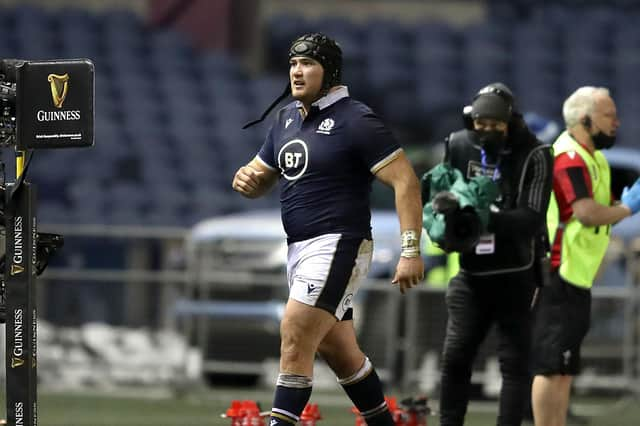Why Zander Fagerson got a longer ban than Peter O’Mahony


But there was widespread confusion as to why the Scotland prop’s ban was longer than the one handed out to Ireland’s Peter O’Mahony the previous week.
Many observers were of the view that O’Mahony’s offence looked worse than Fagerson’s.
Advertisement
Hide AdAdvertisement
Hide AdThe Irish flanker was sent off against Wales in the first round of the Championship but received only a three-match ban from the Six Nations’ independent disciplinary committee.
O’Mahony was shown the red card for an infringement of World Rugby Law 9.20 (a) and (b) - “dangerous play in a ruck or maul”. He ran into a ruck at speed and caught Welsh prop Tomas Francis in the head.
At the disciplinary hearing, O’Mahony admitted the act of dangerous play in a ruck and - crucially - that the offending merited a red card. He did not seek to challenge the referee's decision.
The independent committee found that the offending was reckless and breached Law 9.20(a), in that he charged into a ruck.
As the conduct involved contact with the head, the entry point ban for this offence is six weeks. But the disciplinary committee took into consideration the player’s record and conduct in the hearing, and concluded he was entitled to a 50 per cent reduction of sanction in mitigation.


This was despite the fact that O’Mahony had been sent off previously this season. He was dismissed for Munster against Scarlets in a Pro14 game in October after receiving two yellow cards for illegal ruck clear-outs.
The Ireland forward is suspended for three matches, from February 7 to March 14, meaning he is free to play in his country’s Six Nations final match against England on March 20.
Fagerson was sent off when he collided with Welsh prop Wyn Jones when clearing out a ruck in Scotland’s 25-24 defeat at Murrayfield on Saturday.
Advertisement
Hide AdAdvertisement
Hide AdAt his disciplinary hearing via Zoom on Tuesday evening, Fagerson accepted that he had committed an act of foul play. But what appears to have counted against the Scotland player is that he did not accept that it warranted a red card.
The independent committee found that the Scotland tighthead had, like O’Mahony, infringed Law 9.20(a).
They concluded that it deserved a red card and also warranted a mid-range entry point suspension of six weeks.
However, the length of ban was reduced by two weeks to take account of mitigating factors, including Fagerson’s admission of foul play, good disciplinary record and remorse.
The maximum mitigation available is 50 per cent but this is not usually awarded if the red card is contested, as it was in Fagerson’s case.
The Scotland prop appears, therefore, to have been given a stiffer penalty than O’Mahony’s because he did not accept that his offence was worthy of a red card.
Fagerson’s four-week suspension means he will miss Scotland’s three remaining Six Nations matches, against France, Ireland and Italy, and one further match. He has the right to appeal.
As well as evidence given by Fagerson himself, the disciplinary committee heard submissions from Scotland coach Gregor Townsend and legal counsel Bruce Caldow.
Advertisement
Hide AdAdvertisement
Hide AdThe independent committee comprised David Hurley (Ireland), Becky Essex (England) and Stefan Terblanche (South Africa).
A message from the Editor:
Get a year of unlimited access to all of The Scotsman's sport coverage without the need for a full subscription. Expert analysis of the biggest games, exclusive interviews, live blogs, transfer news and 70 per cent fewer ads on Scotsman.com - all for less than £1 a week. Subscribe to us today
Comments
Want to join the conversation? Please or to comment on this article.